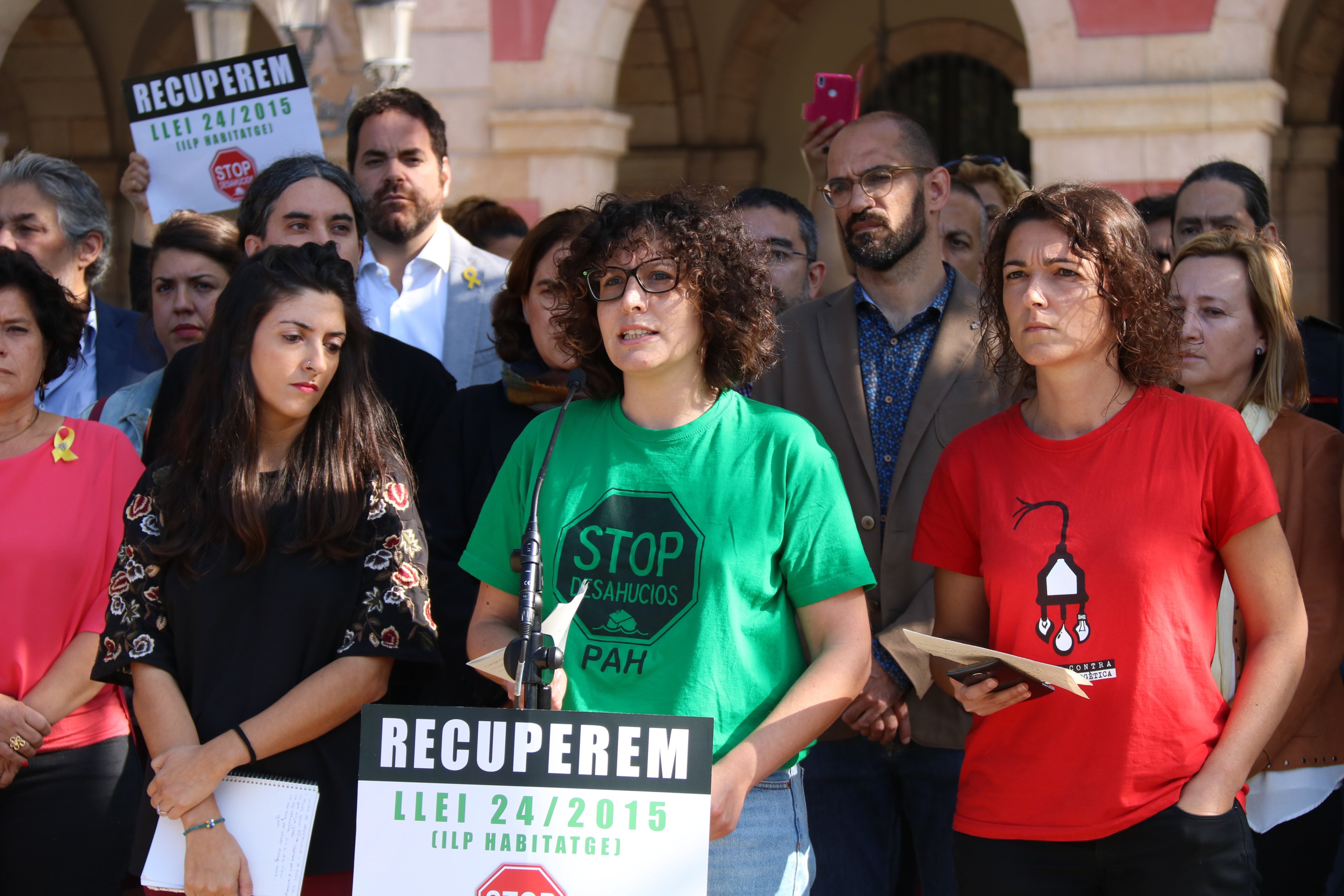More judicial interference. The plenary session of the Spanish Constitutional Court today overturned part of the Catalan housing law, Law 11/2020, on urgent measures to limit rental prices, in response to an appeal lodged by the right-wing People's Party (PP). The court unanimously agreed that nine articles of the Catalan law invade competencies held by the Spanish government and thus declares it unconstitutional. Faced with this news, the four Catalan parties that approved the law in September 2020, JxCat, ERC, Comuns and the CUP, called a press conference this afternoon in Parliament. Catalonia's Tenants' Union (Sindicat de Llogateres) also demanded an urgent response from the Catalan government. The full court decision, drafted by Ramon Sáez as delegated judge, has not yet been made public.
Specifically, the Constitutional Court annuls Articles 1, 6-13, 15 and 16.2; the first, second and third additional provisions; the first transitional provision and the fourth final provision, letter b); the fourth additional provision, and the third final provision of the Catalan Law 11/2020. The law had instituted a freeze and in some cases a lowering of rental prices in areas subject to accommodation "tension" in the 60 Catalan cities with populations over 20,000, although owners with incomes of less than 2,000 euros per month were exempt. For practical purposes, what today's decision means is that parts of the law mentioned will no longer apply from the moment the full court resolution is made public. This will happen in the coming days, warns the Tenants' Union, and it calls for firm action by the Catalan government. Indeed, today the Spanish government was propelling its own new housing law through the Congress of Deputies, although it, in turn, is invading the powers of the autonomous communities, judicial powers have warned.
Future contracts affected
However, the Constitutional Court, in a statement, has advanced the content of its resolution and one of the key points is that it maintains that its decision "does not affect consolidated legal situations, in accordance with the principle of legal certainty and the legitimate aim of seeking stability in pre-existing contractual relations." The effects will be "pro-future," it said. In other words, housing rental contracts signed prior to the time of the current resolution are maintained as they stand.
In addition, it states that the purpose of the state's maintenance of its own powers in matters of contract law is "the need to ensure a common denominator in the principles that must govern contractual obligations", which is achieved when the general categories are the the same throughout the country. And it underlines that the constitutional jurisprudence establishes the state's competence over the "basis for contractual obligations" and that this must be understood as "a structural guarantee of the single market", inherently implying a limit on regulatory diversity that autonomous community legislators could introduce.
Tenants protest
The Tenants' Union was the first to react and "condemned the fact that this organ overturns the decisions of the Parliament of Catalonia" and that it reduces the right to housing, "benefiting the interests of the real estate lobby." It adds that the rent control law is an effective tool for lowering the price of rents and has benefited more than 160,000 tenants in the last year, lowering rents by an average of 5% in cities that are regulated, that is, where 70% of the Catalan population live. For that reason, the group also appeared at the press conference this afternoon and announced a rally to reject the court's decision this Saturday at 6pm in Barcelona's Plaça Sant Jaume.
The social consensus across Catalan society in the face of the housing emergency has allowed Parliament to recently pass another housing regulation, Law 1/2022 which modifies other rules to deal with the current situation of housing emergency. Catalonia continues to lead the number of home evictions in Spain, despite the moratorium declared under Covid.

